Ethical Dimensions of Cybercrime: The Bank of Queensland Case Study
VerifiedAdded on 2022/12/15
|6
|802
|128
Case Study
AI Summary
This case study examines the ethical considerations surrounding cybercrime, using the Bank of Queensland (BOQ) data breach incident of March 18, 2019, as a focal point. It analyzes the incident through the lenses of utilitarianism, deontological ethics, and social contract theory, highlighting the responsibilities of various actors, including BOQ and the government, in mitigating cyber risks. The study emphasizes the need for aligned sovereignty and international cooperation in managing cyber threats, and it argues that traditional rights-based approaches are insufficient for addressing the complex challenges of cyberspace. A mind map visually summarizes the ethical considerations for BOQ's cybersecurity. The case study informs researchers about vulnerabilities in widely used products and analyzes the ethical dimensions of legal enforcement law requests for encrypted data, also leaving space for future questions to be considered on ethics to add to that list. Desklib offers this and many other solved assignments for students.
1 out of 6
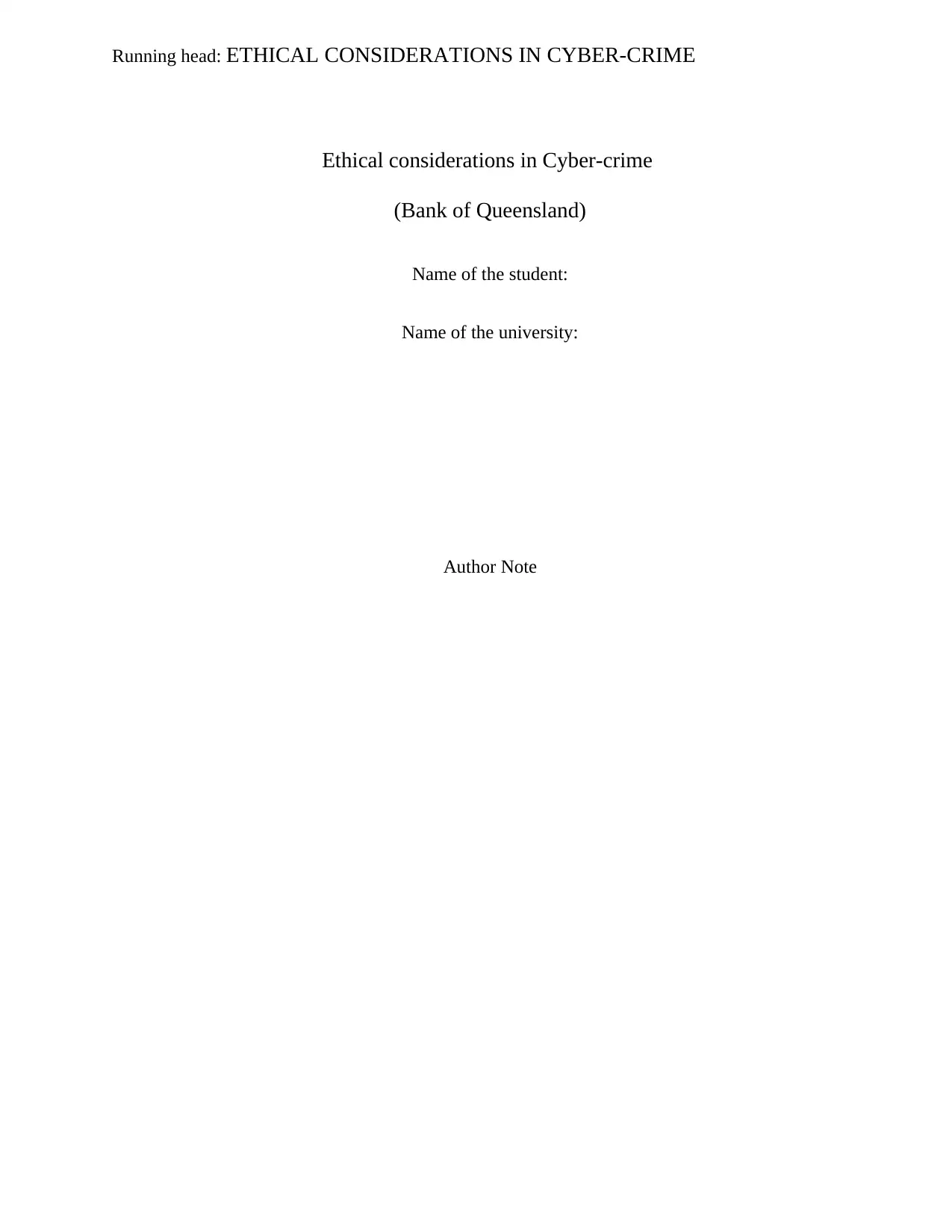
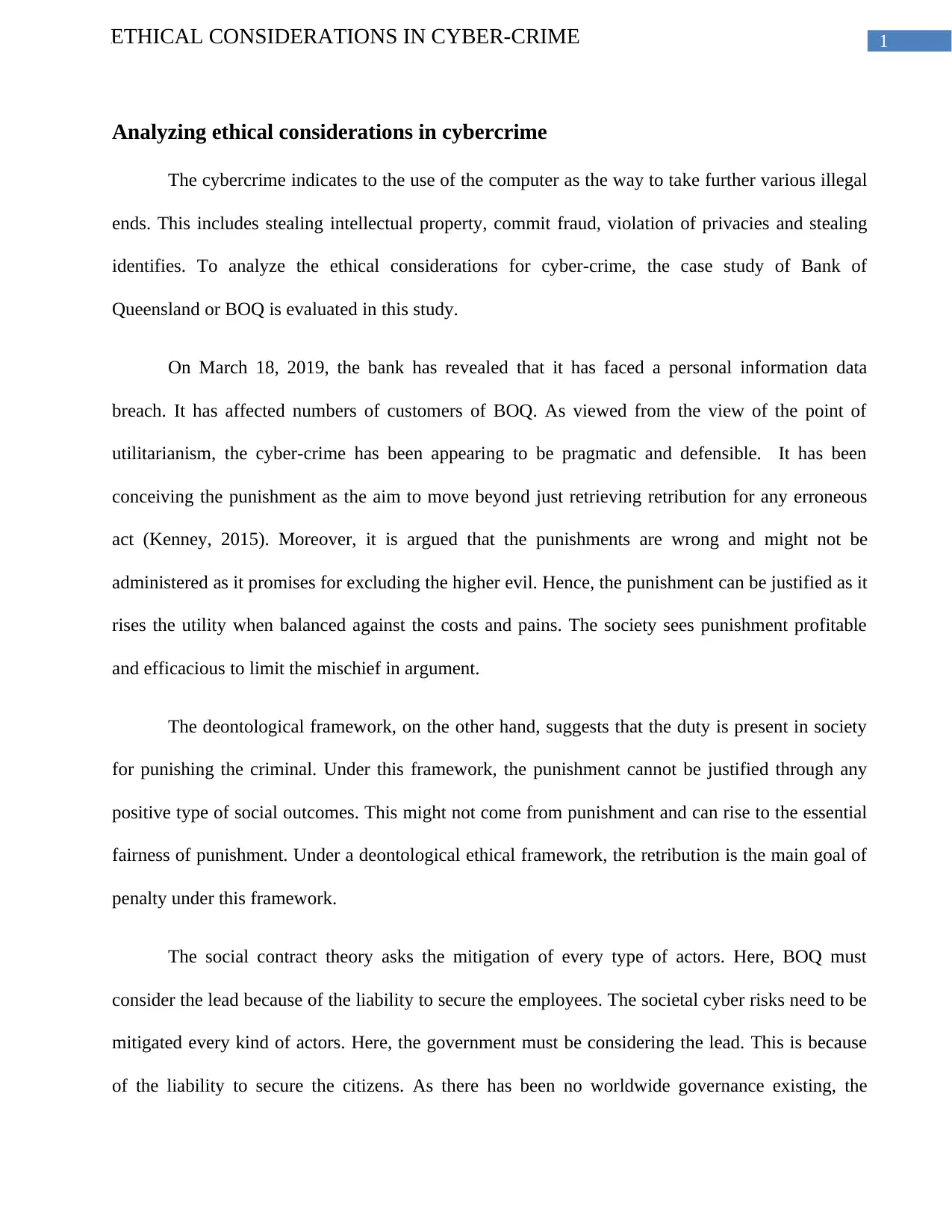
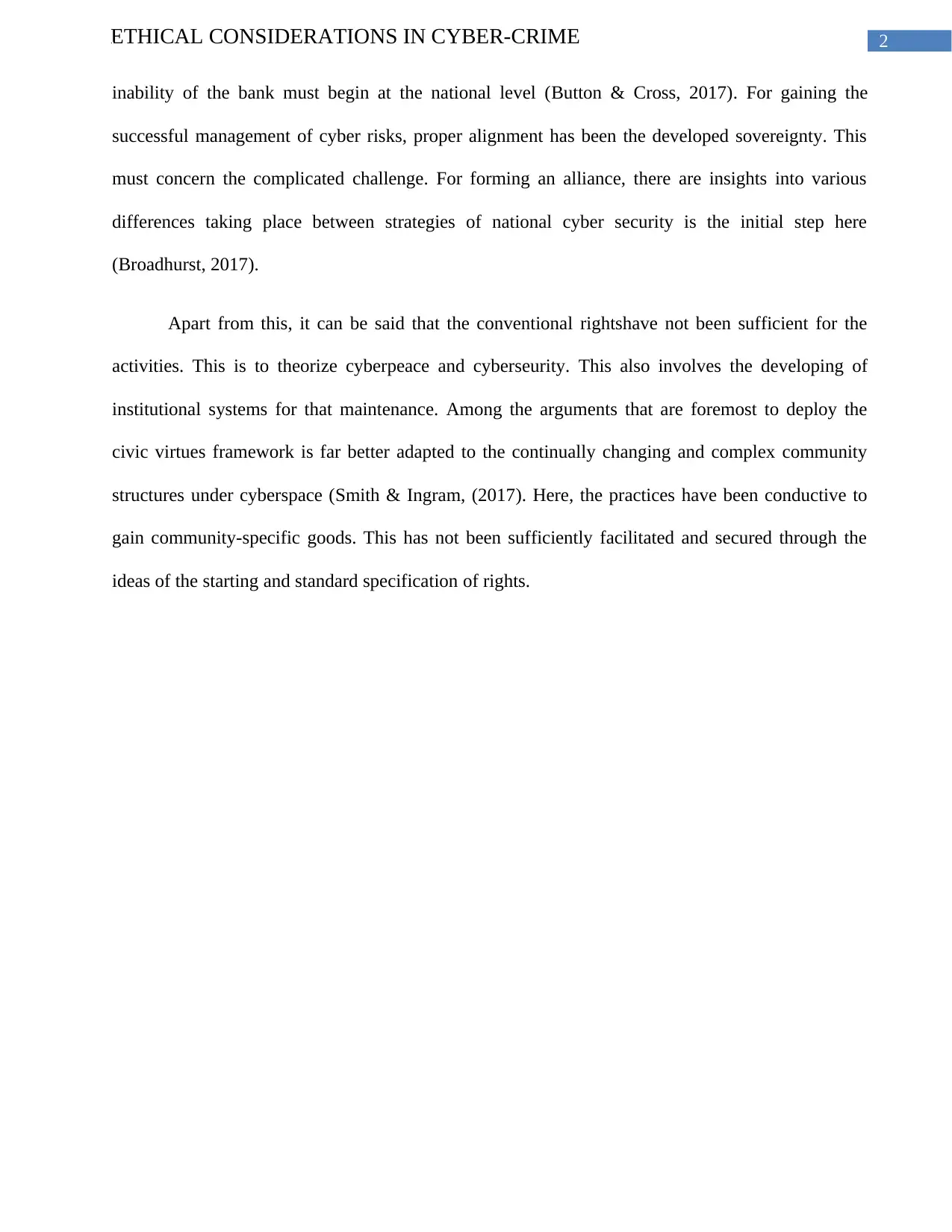

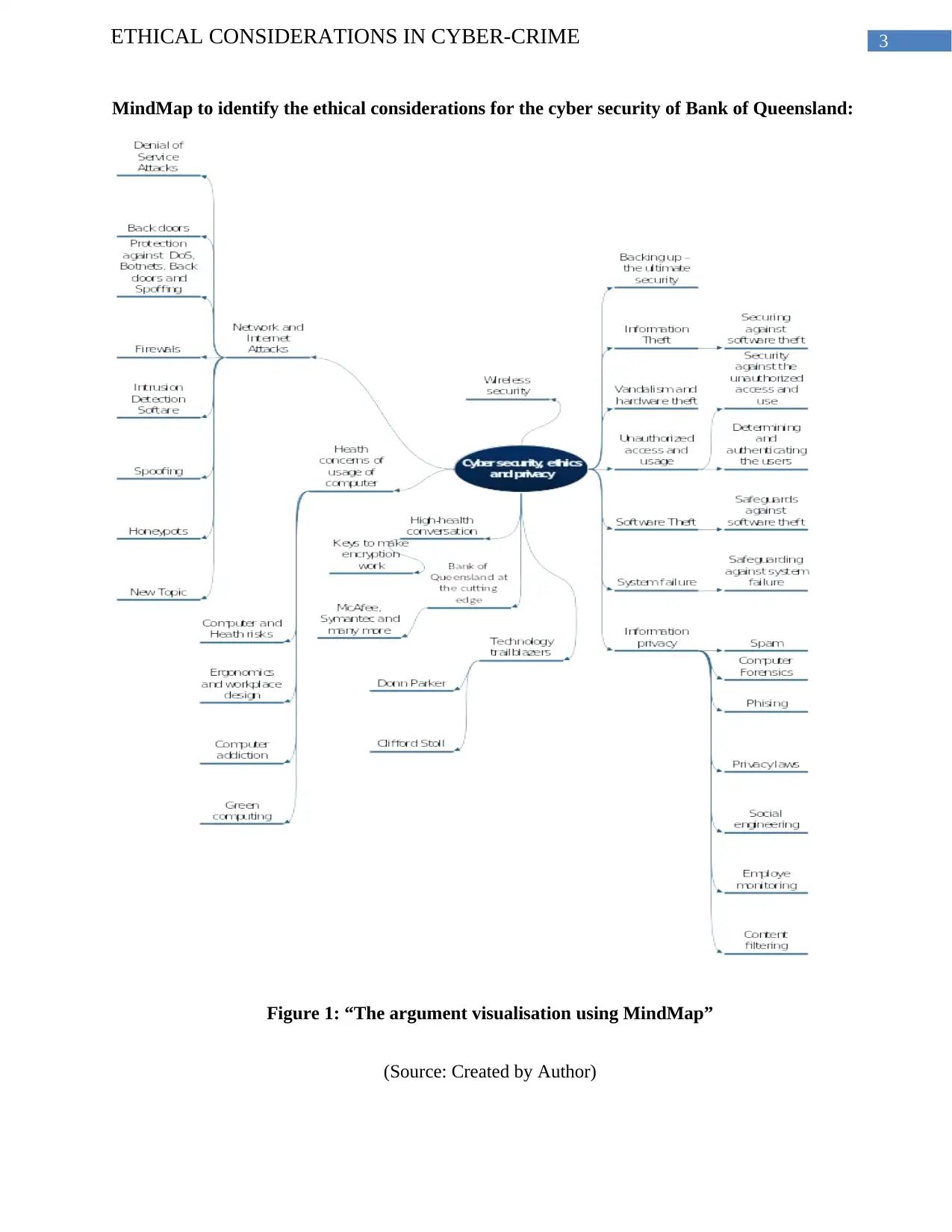
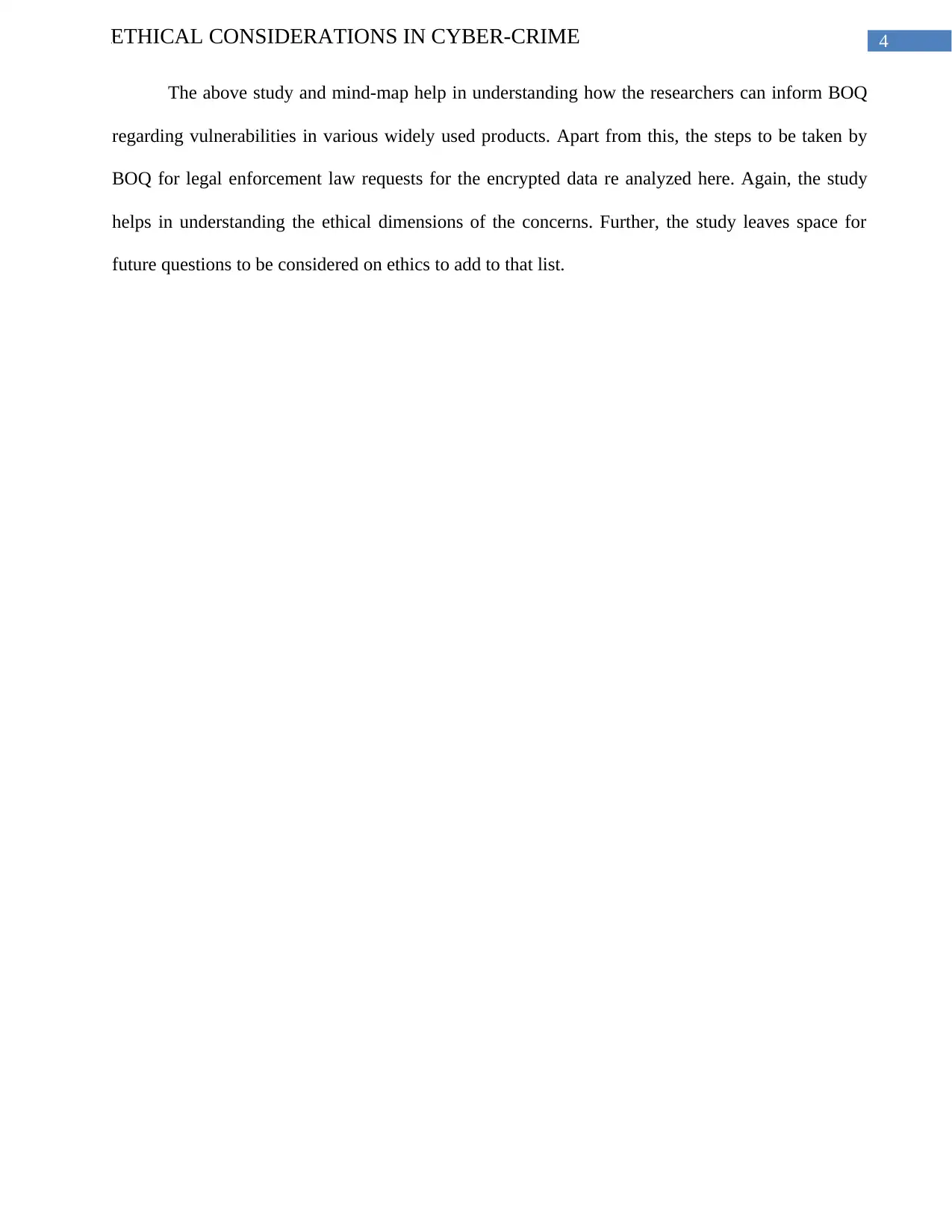
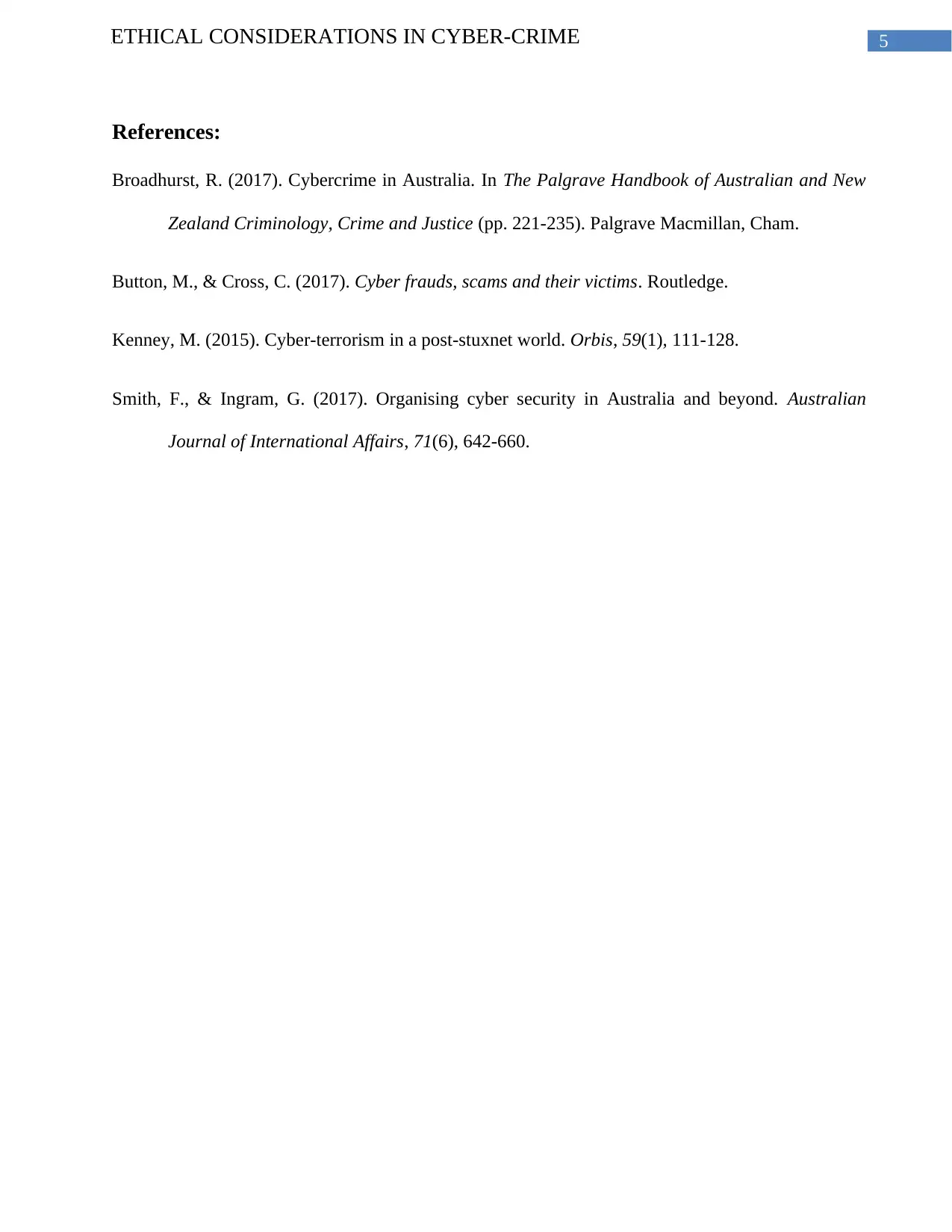
![[object Object]](/_next/static/media/star-bottom.7253800d.svg)